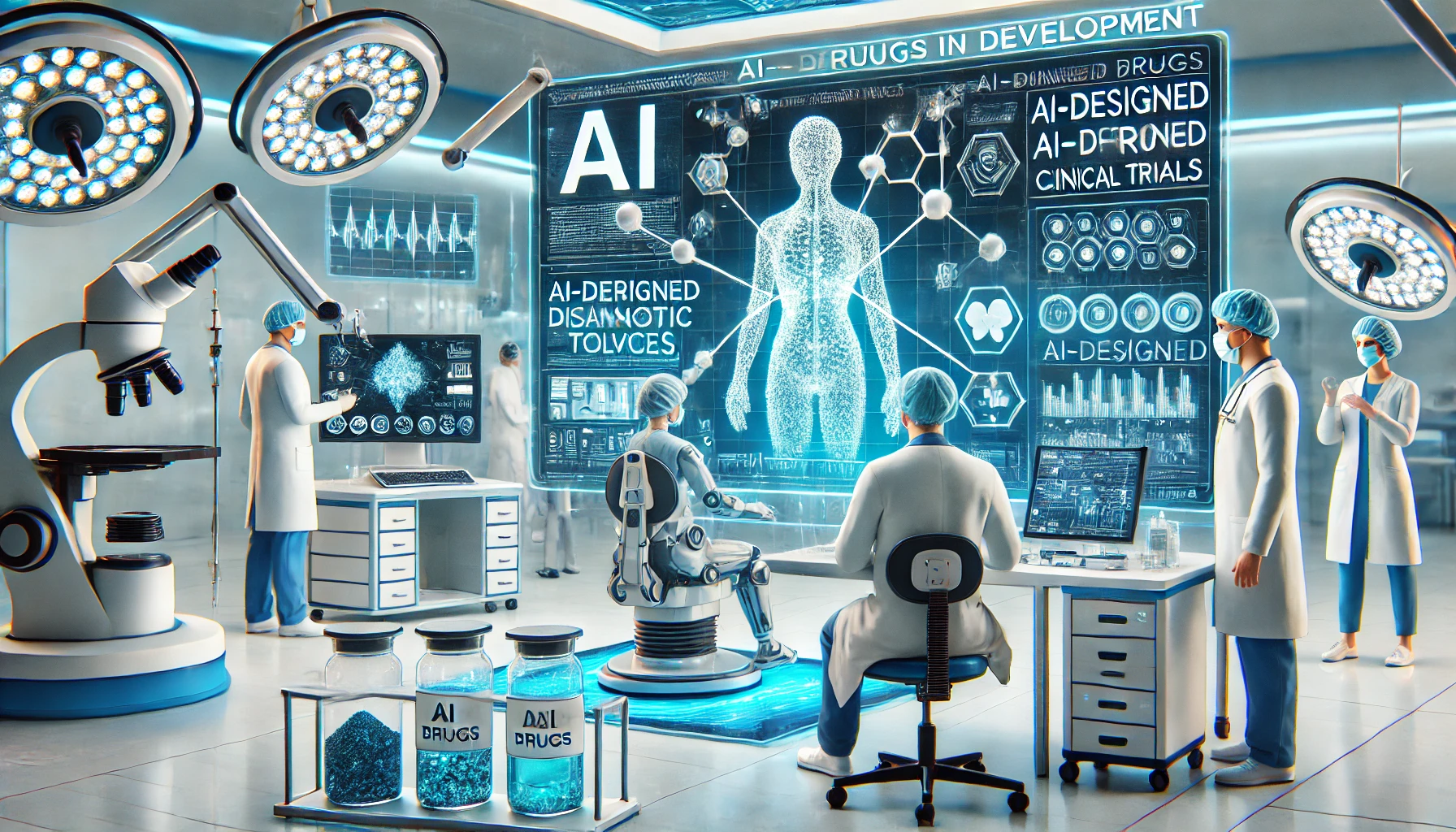The healthcare industry is undergoing a technological revolution, with artificial intelligence (AI) at the forefront of this transformation. In 2023, AI-designed drugs entered clinical trials, marking a significant milestone in the integration of AI into pharmaceutical development. At the same time, the U.S. Food and Drug Administration (FDA) witnessed a surge in approvals for AI-enabled medical devices, signaling a shift towards AI-powered solutions across the healthcare spectrum. As we move into 2024, the role of AI in healthcare is set to expand even further, offering both groundbreaking innovations and challenges.
AI-Designed Drugs: A New Frontier in Medicine
One of the most exciting developments in 2023 was the entry of AI-designed drugs into clinical trials. Traditional drug discovery is a time-consuming and costly process, often taking years or even decades to bring a new drug to market. AI, however, is transforming this landscape by enabling faster identification of potential drug candidates.
Using advanced algorithms and machine learning, AI systems can sift through vast datasets, identify patterns, and predict how different compounds will interact with biological targets. This significantly accelerates the drug discovery process, allowing researchers to move promising compounds into clinical trials more quickly.
The first AI-designed drugs to enter human trials have shown encouraging results. These AI-powered discoveries have the potential to treat conditions ranging from cancer to neurodegenerative diseases, and their success in clinical trials could reshape the future of medicine. As we enter 2024, more AI-designed drugs are expected to follow, potentially revolutionizing how pharmaceutical companies approach research and development.
Surge in FDA Approvals for AI-Enabled Medical Devices
In addition to advancements in drug discovery, AI-enabled medical devices have also seen rapid growth. In 2023, the FDA approved a record number of AI-powered medical devices, covering areas such as diagnostics, imaging, and robotic surgery.
AI’s ability to analyze vast amounts of data in real time allows medical devices to become more accurate and efficient. For example, AI algorithms can enhance medical imaging technologies, helping radiologists detect abnormalities with greater precision. Similarly, AI-driven robotics can assist surgeons in performing minimally invasive procedures with enhanced accuracy, reducing recovery times and improving patient outcomes.
The FDA’s increased approvals of these devices reflect growing confidence in AI as a critical tool for healthcare innovation. In 2024, this trend is expected to continue, with more devices entering the market, improving patient care, and streamlining medical processes.
AI in Diagnostics and Personalized Medicine
AI is also driving advancements in diagnostics and personalized medicine. By analyzing patient data, including medical histories, genetic information, and real-time health monitoring, AI can help doctors diagnose diseases earlier and more accurately. This is particularly valuable for conditions like cancer, where early detection is crucial for successful treatment.
Moreover, AI is enabling personalized treatment plans tailored to individual patients. With the help of machine learning, doctors can analyze a patient’s unique genetic makeup, lifestyle, and health data to recommend treatments that are most likely to be effective. This approach is already showing promise in oncology, where personalized cancer treatments are leading to improved survival rates.
As AI technologies continue to evolve in 2024, we can expect even more sophisticated diagnostic tools and personalized treatment options, paving the way for a future where healthcare is more precise and patient-centered.
Challenges and Ethical Considerations
While the rise of AI in healthcare presents tremendous opportunities, it also raises important ethical and regulatory challenges. Ensuring the accuracy and safety of AI-powered medical devices and treatments is paramount. Regulatory bodies like the FDA must continue to rigorously assess AI innovations to ensure they meet high standards of patient safety and efficacy.
Data privacy is another concern. AI relies on large datasets, often involving sensitive patient information. Ensuring the security and confidentiality of this data will be critical as AI becomes more integrated into healthcare systems.
Finally, there is the issue of access. As AI-powered healthcare technologies become more widespread, there is a risk that these innovations may be available only to those who can afford them, exacerbating existing healthcare inequalities. Ensuring equitable access to AI-driven healthcare advancements must be a priority as the technology develops.
The Future of AI in Healthcare
Looking ahead to 2024, the growth of AI in healthcare shows no signs of slowing. With AI-designed drugs entering clinical trials, a surge in AI-enabled medical devices, and advancements in diagnostics and personalized medicine, AI is poised to play an increasingly central role in modern healthcare.
While challenges remain, the potential benefits of AI—improved patient outcomes, faster drug development, and more accurate diagnoses—are too significant to ignore. As researchers and regulators work together to address these challenges, AI is set to revolutionize healthcare, making it more efficient, personalized, and accessible for patients around the world.
The future of healthcare is undeniably digital, and AI is leading the way.




